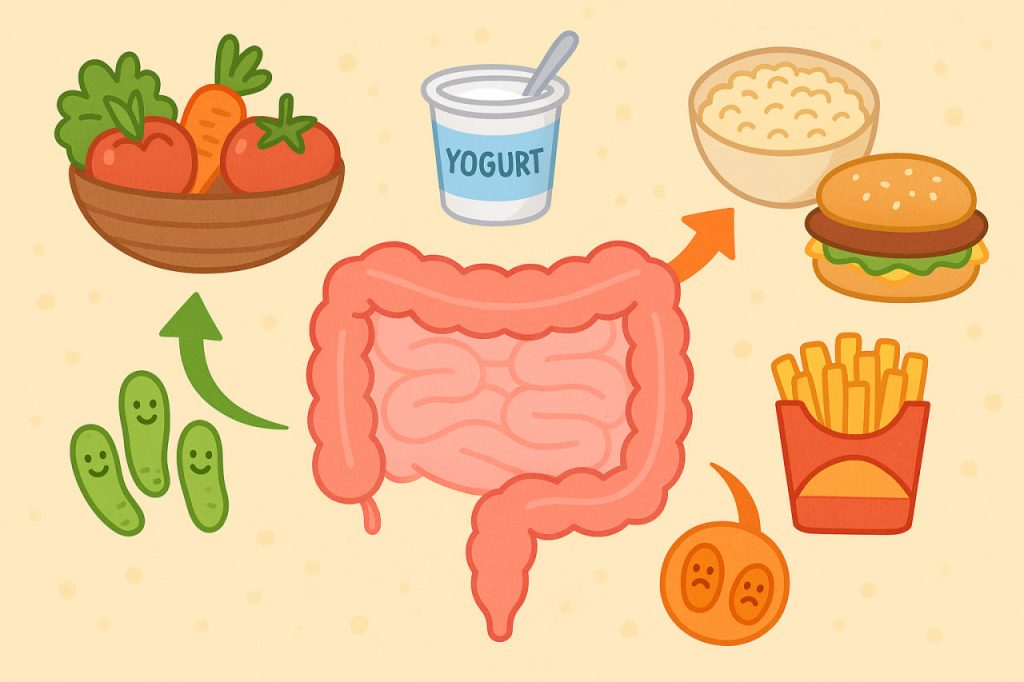The human digestive system is home to trillions of microorganisms, collectively known as the gut microflora or gut microbiota. These bacteria, fungi, and other microbes play a vital role in digestion, immunity, and overall health. What we eat directly influences the composition and diversity of these microorganisms. A balanced diet supports beneficial bacteria, while poor food choices can disturb the microbial balance, leading to health problems.
The Role of Gut Microflora
Gut microflora help break down food components that the human body cannot digest on its own, such as certain fibers. They also produce essential compounds, including vitamins B and K, and short-chain fatty acids that nourish the intestinal lining. Additionally, a balanced microflora acts as a protective barrier against harmful pathogens and supports the immune system.
Effects of Fiber-Rich Foods
Foods rich in dietary fiber, such as fruits, vegetables, legumes, and whole grains, are the most beneficial for gut health. These fibers act as prebiotics, feeding beneficial bacteria like Bifidobacteria and Lactobacilli. A high-fiber diet increases microbial diversity and supports stable digestion, reducing the risk of constipation, inflammation, and chronic diseases.
Impact of Fermented Foods
Fermented foods such as yogurt, kefir, sauerkraut, kimchi, and miso contain probiotics—live beneficial microorganisms that can enrich gut microflora. Regular consumption of these foods enhances microbial balance, improves digestion, and may boost immunity. Fermented products are especially valuable after antibiotic treatments, which can disrupt the natural microbiota.
Negative Influence of Processed Foods
Diets high in sugar, refined grains, and processed products can harm gut microflora. Such foods reduce microbial diversity, promote the growth of harmful bacteria, and trigger inflammation. Over time, this imbalance (called dysbiosis) may contribute to obesity, diabetes, and other metabolic disorders. Artificial additives and preservatives in processed foods may further disturb microbial health.
Protein and Fat Intake
Moderate amounts of lean protein and healthy fats support microbial health, but excess consumption of red meat and saturated fats can negatively impact gut bacteria. Diets too high in animal fats tend to promote bacteria linked to inflammation. In contrast, omega-3 fatty acids from fish, walnuts, and flaxseeds encourage the growth of beneficial bacteria.
Conclusion
Food has a direct and powerful effect on gut microflora. Fiber-rich and fermented foods promote a healthy, diverse microbiota, while processed and high-sugar diets disturb microbial balance. By making mindful dietary choices, people can protect their gut ecosystem, support digestion, and strengthen their overall health.
Glossary
- Gut microflora (microbiota) – the community of microorganisms living in the human digestive tract.
- Prebiotics – fibers that feed beneficial bacteria in the gut.
- Probiotics – live beneficial bacteria found in fermented foods that support gut health.
- Dysbiosis – an imbalance in gut microbiota that can cause health problems.
- Short-chain fatty acids – compounds produced by gut bacteria that support intestinal health.


